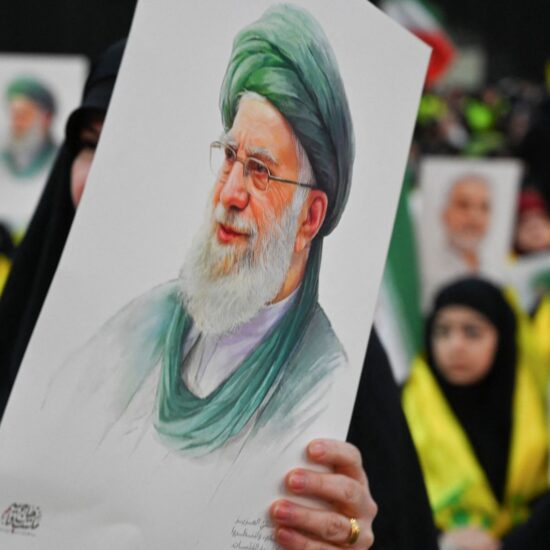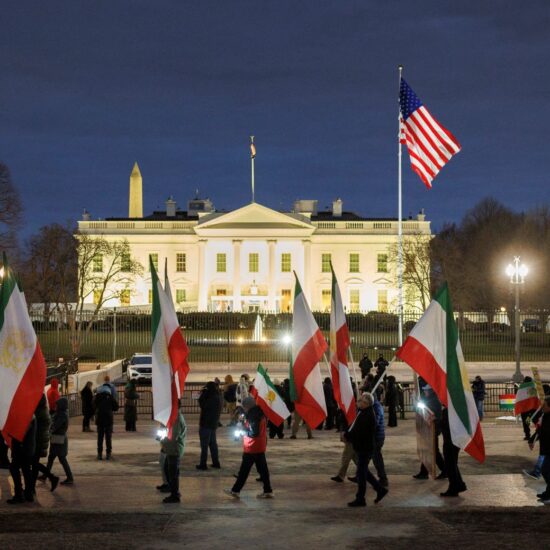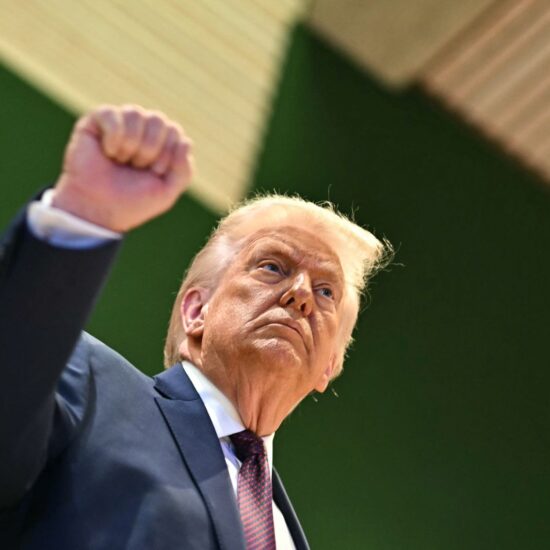
As Trump and Netanyahu solidify a shared foreign policy vision, Lebanon faces an uncertain future, with unresolved internal divisions and regional tensions pushing the country toward either sovereignty or fragmentation
Former President Donald Trump has won a decisive victory over Democratic candidate and incumbent Vice President Kamala Harris, securing his return to the White House in a historic election outcome. At 78, Trump will become the oldest person ever elected to the presidency, and the first former president in over a century to reclaim the office. His return comes amid a turbulent period for the US and its allies, with the escalating conflicts in Gaza and Lebanon posing immediate foreign policy challenges.
Kamala Harris, in her concession speech, acknowledged the gravity of the moment. “We may have lost this election, but we must unite for a peaceful transfer of power,” she said, urging her supporters to accept Trump’s win with dignity. World leaders were quick to respond to Trump’s victory; notably, Israeli Prime Minister Benjamin Netanyahu and the UK’s Keir Starmer were among the first to extend their congratulations.
One of the most pressing issues Trump will face is Israel’s ongoing military campaign, which now includes active hostilities in Lebanon. Shelters throughout the country are filling up as over 170,000 people have fled from the south and the Beqaa Valley, seeking refuge from intensified Israeli strikes. Residents in areas like Ras Al Nabaa are increasingly focused on securing essentials, with many expressing frustration at the mounting toll of the conflict.
Non-Resident Scholar at the Middle East Institute, Samir Altaqi, believes Trump’s re-election won’t bring significant shifts in US foreign policy but sees potential for tactical changes. “Trump will keep America’s interests at heart, primarily focusing on protecting the domestic economy rather than embroiling the US in new global conflicts,” Alaqi commented. He noted Trump’s approach suggests that the new president wants to let foreign actors clash without direct US intervention.
According to Altaqi, Trump and Netanyahu’s relationship will likely reinforce the latter’s agenda, especially in Lebanon and Gaza. “There’s an understanding between Trump and Netanyahu that Israel will pursue its interests in Lebanon,” he explained. This dynamic, he believes, is partly driven by Netanyahu’s growing distrust in international mediations. “Since October 7, Netanyahu doesn’t trust the idea of regional balance through proxies anymore,” Taki said, referencing Israel’s position towards Iran and regional stability. “The Israelis and Americans are increasingly viewing Hezbollah’s missile arsenal in Lebanon as an unacceptable threat.”
Senior editor at the Malcolm H. Kerr Carnegie Middle East Center in Beirut and editor of Diwan, Michael Young, shared a critical view of both Trump and Harris regarding their approaches to the Middle East. Reflecting on the Democrats’ role, he told NOW, “After a year of effectively being complicit in mass murder, I can’t say I mind seeing the Democrats take a hit. Trump may be no better, though. We’ll see.”
Young argued that while Trump has occasionally challenged the foreign policy establishment in other areas, “when it comes to the Middle East, Trump essentially followed the same approach as the so-called deep state – by which I mean the military, intelligence, and foreign policy establishment in Washington, the ones who largely control policy,” Young said. “For decades, that establishment has stuck to a simple rule: the US must remain the dominant power in the Middle East, with Israel as its main partner.”
Trump recently posted on Truth Social, “I will fix the problems caused by Kamala Harris and Joe Biden and stop the suffering and destruction in Lebanon.” However, Young remains doubtful. Regarding a potential ceasefire, “Israel would have substantial flexibility in deciding a ceasefire,” he said, pointing to the US granting Israel substantial flexibility in such matters. “In the leaked version of the proposed ceasefire agreement last week, the Americans noted in a side letter that Israel could act unilaterally if any ceasefire terms were breached,” Young explained. “That provision signals a US willingness to let Israel take independent actions if needed.”
Young further highlighted Netanyahu’s goal for Lebanon, which he sees as closely aligned with US objectives. “Netanyahu has little interest in a ceasefire in Lebanon, just as he doesn’t in Gaza,” Young said. “What he wants is to establish a security order in both regions where Israel can act as it sees fit.” Young pointed out that while the US might publicly support a ceasefire, they are giving Israel the option to act independently to protect its interests, indicating a lack of confidence in the latitude of the UN and the Lebanese Armed Forces to secure Israel’s security.
Altaqi elaborated on this sentiment, stating that Netanyahu’s plans for Lebanon extend beyond tactical operations. “Israel can’t accept Hezbollah’s arsenal anymore. It’s now a security imperative, not just a strategic threat,” he explained. This view aligns with Netanyahu’s desire to pursue a comprehensive security order in Lebanon and Gaza that ensures Israel’s freedom of military action in the region.
Young remained critical of both administrations, doubting that Harris’s victory would have changed the US approach. “I don’t see how it would have made a difference, honestly,” he said. “Maybe on the Iranian front, things could be different, but even the Harris administration had a lackluster approach to the region.” He noted the administration’s failure to revive the nuclear agreement and predicted that even if Harris had won, “she would have been a weak president, unable to move effectively in foreign policy due to her limited support in Congress.”
According to Altaqi, Trump’s administration will likely give Netanyahu significant freedom to manage Israel’s policies in Lebanon, but Netanyahu has no clear vision for the aftermath – for what Lebanon or Gaza might look like ‘the day after,’ “which is a risky stance,” the analyst said.
“Trump could end up clashing with Netanyahu over this, particularly as other regional powers, like Saudi Arabia, will not be willing to bear the consequences of Netanyahu’s actions in Gaza or Lebanon,” Taki added.
In practical terms, this means Israel will likely have to make concessions in Gaza and Lebanon to stabilize its position. There’s a fundamental dilemma here: with Hezbollah’s weapons essentially defanged, Iran can no longer leverage it as a strategic tool to defend Tehran. Instead, Hezbollah’s role will likely pivot more inwardly, Taki explained. “The situation is complex, with various possible outcomes,” the analyst said.
After the events of October 7, Israel has reassessed its strategic priorities, particularly in relation to Iran. According to Altaqi, while Iran’s nuclear ambitions have long been a source of concern, the situation has now shifted. The growing influence and capabilities of Iran’s proxies, including Hezbollah in Lebanon, have become a more immediate and pressing threat to Israel’s security.
The expert believes Lebanon is heading toward a turning point. If Lebanese political factions fail to reach a compromise, the country risks prolonged instability or even partition. External powers may continue using Lebanon as a battleground to further their agendas. Still, some influential Lebanese politicians could steer Lebanon back toward sovereignty, though their strength is currently diminished. If these factions manage to unify around a vision for sovereignty, Lebanon might avoid occupation or civil conflict. However, if the internal deadlock persists, the possibility of Lebanon being drawn into either regional conflict or internal fragmentation remains high, with no guaranteed solutions.








